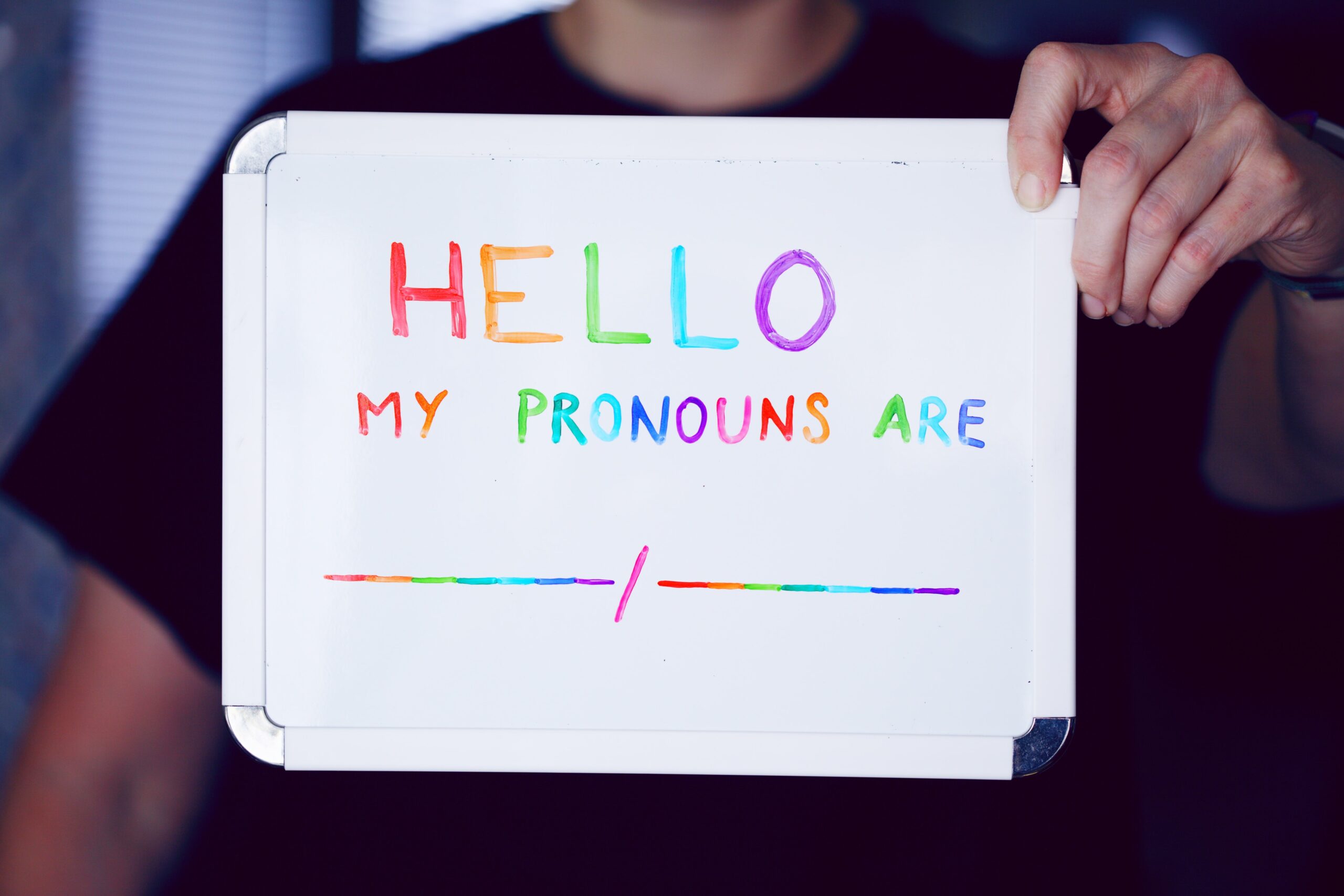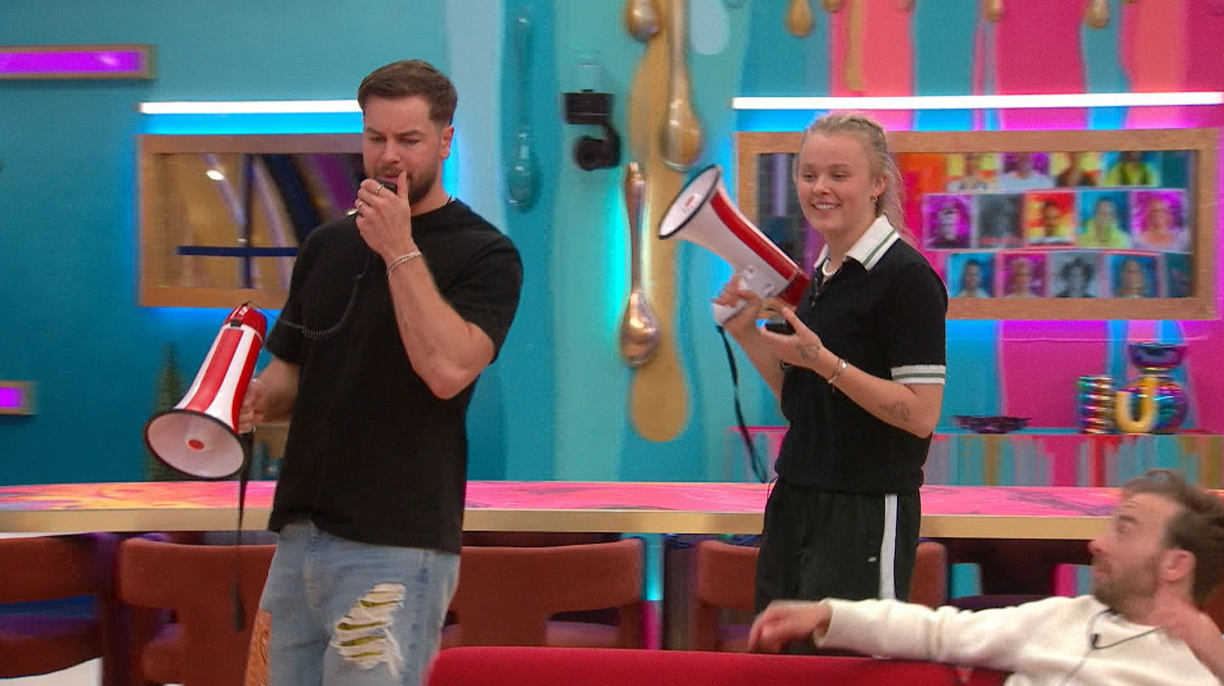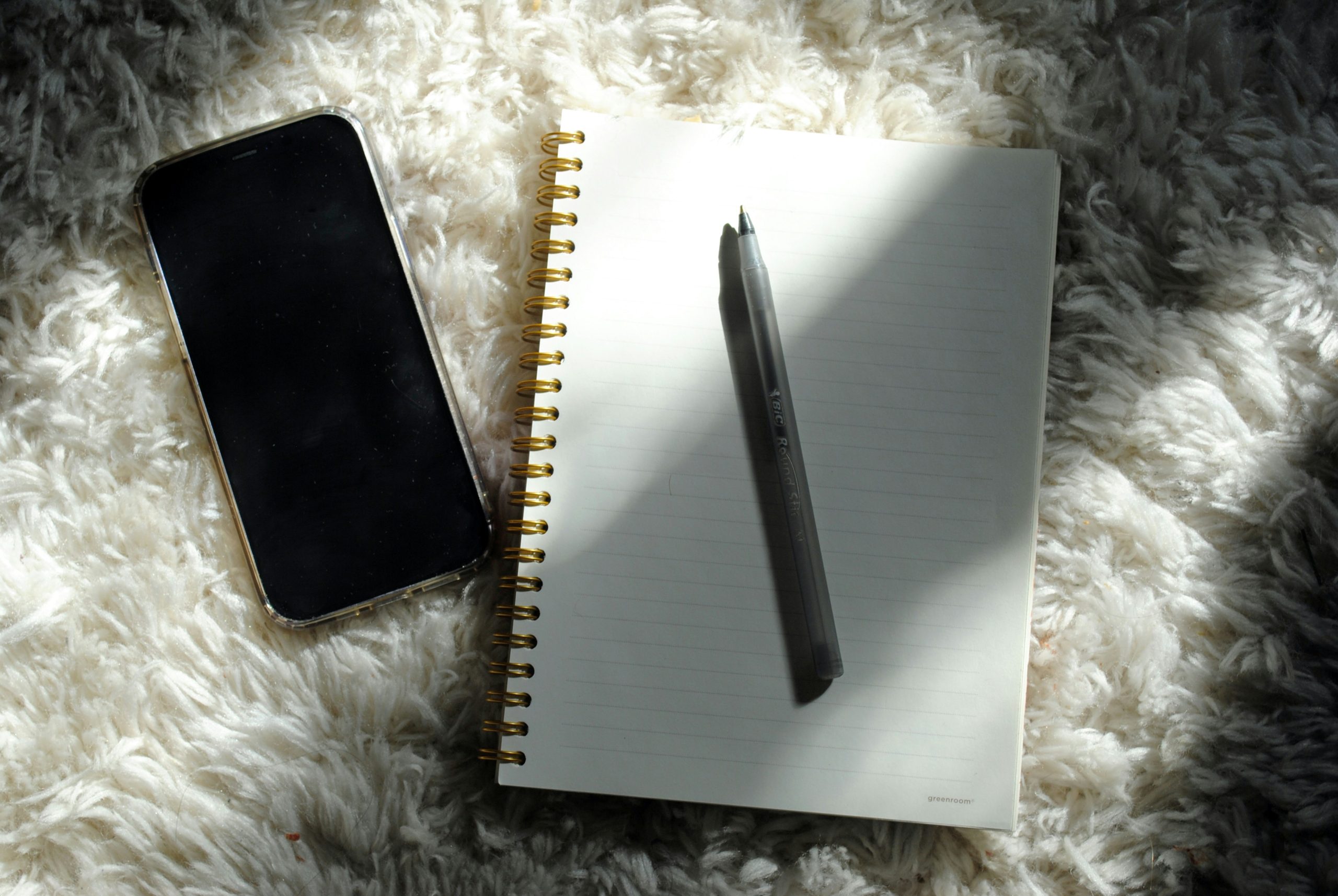
Pronouns
Photo by Alexander Grey on Unsplash
October 21, 2020 marks the third annual International Pronouns Day.
Created by an independent board and first observed in 2018, it’s one of those small commemorative holidays that trends on Twitter in hopes of drawing attention to a pressing social issue, like International Women’s Day (March 8th) or the ever so serious National Taco Day (October 4).
But Pronouns Day in particular “seeks to make respecting, sharing, and educating about personal pronouns commonplace.” The organization’s website further describes, “Referring to people by the pronouns they determine for themselves is basic to human dignity. Being referred to by the wrong pronouns particularly affects transgender and gender nonconforming people. Together, we can transform society to celebrate people’s multiple, intersecting identities.”
But in the words of nonbinary activist and Trevor Project’s Head of Advocacy and Government Afairs, Sam Brenton, “Pronouns are hard.” Never before have pronouns been scrutinized as closely as they are in 2019 for their power to (in)validate or accurately describe something as fluid as gender identity. In fact, it was only this year that the Merriam-Webster Dictionary expanded the definition of “they” “to refer to a single person whose gender identity is nonbinary” (thus codifying a long history in English language of using “they” to refer to a singular non-gendered entity).
But throwing an additional wrench in the works is the fact that not all non-binary people prefer gender-neutral pronouns.
Take me, for instance: Despite having female biology, I couldn’t pass a lie detector test saying I’m a “woman.” But my pragmatic, Puritan family is still endearingly confused by the idea of “liberal arts,” let alone the notion of gender fluidity. And I’d rather share a communal language with them than do the emotional and mental labor of re-orienting their worldview for them. Plus, I have the privilege of passing as female without feeling too, too, terribly dysphoric (which non-binary people can definitely suffer from, despite not identifying as trans).
But enough about me, look at Queer Eye‘s beloved Jonathan Van Ness. While he’s been outspoken about being genderqueer, gay, and HIV positive, he prefers he/him pronouns. “The older I get, the more I think that I’m nonbinary,” Van Ness said. “I’m gender nonconforming. Like, some days I feel like a man, but then other days I feel like a woman.” As he told Out magazine, he doesn’t identify as a man, but he does prefer “he/him/his” pronouns. In his view, those pronouns don’t detract from or contradict his non-binary identity, because gender is not about simple binaries between masculine and feminine identifiers. “Any opportunity I have to break down stereotypes of the binary, I am down for it, I’m here for it,” he said. “I think that a lot of times gender is used to separate and divide. It’s this social construct that I don’t really feel like I fit into the way I used to.”
On the other hand, last month non-binary singer Sam Smith announced that their preferred pronouns are “they/them.” Smith posted to Instagram, “I’ve decided I am changing my pronouns to THEY/THEM ❤ after a lifetime of being at war with my gender I’ve decided to embrace myself for who I am, inside and out.” People like Smith and Trevor Project’s Sam Brenton simply feel more validated, seen, heard, and true to themselves with gender-neutral pronouns. Smith wrote, “I’m so excited and privileged to be surrounded by people that support me in this decision but I’ve been very nervous about announcing this because I care too much about what people think but f*ck it!”
Most importantly, as pretty much every non-binary person and activist is aware, changing cultural norms is hard. While LGBTQ+ activism is inspired and passionate and dedicated to expanding human rights to all gender identities, we all know that changing society’s entire understanding of gender and pronoun usage is about slowly opening minds. As Smith wrote, “I understand there will be many mistakes and mis gendering but all I ask is you please please try. I hope you can see me like I see myself now. Thank you.” Happy Pronouns Day to you/him/her/they/(f)aer/zim.
- Understanding How to Use the Pronoun “They/Them” – trueself ›
- Unpacking The Third Eye: What It Is (And How to Open It) – trueself ›














